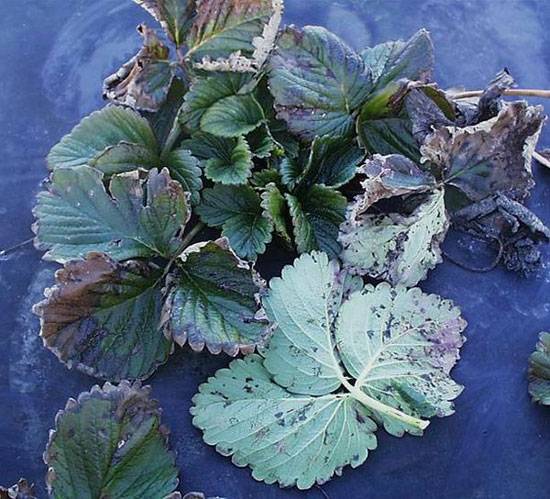Strawberry
Angular Leaf Spot

Xanthomonas fragariae
Bacterial Disease

Xanthomonas fragariae
Bacterial Disease
Angular leaf spot is a bacterial disease in strawberries caused by Xanthomonas fragariae. It can often be confused with common leaf spot or leaf scorch diseases, making diagnosis challenging. While the disease thrives in cool, wet conditions, it typically does not severely impact yields. However, once infection sets in, managing the disease becomes difficult until favorable conditions change.
Symptoms and Signs:
- Initial Lesions: The disease starts with water-soaked lesions on the lower leaf surfaces. These lesions become angular as they grow, confined by leaf veins.
- Bacterial Exudate: In very moist conditions, the lesions may ooze a yellow, viscous substance, which is a mass of bacteria. Once dry, this leaves behind a white film on the leaf.
- Upper Leaf Surface: Lesions on the upper side of the leaves appear as reddish-brown spots, often surrounded by a yellow halo.
- Translucent Lesions: One key identifier is the translucent nature of the lesions. When held up to light, the angular lesions allow light to pass through.
- Leaf and Plant Impact: In severe cases, entire leaves and veins may be infected, leading to a ragged appearance. Berry caps can also become infected, leading to darkened and unattractive fruits. Although plant death from vascular infection and wilting is rare, it can occasionally occur.
- Microscopic Identification: Infected tissues, when finely chopped and viewed under a microscope, will show bacterial masses oozing from lesions.




